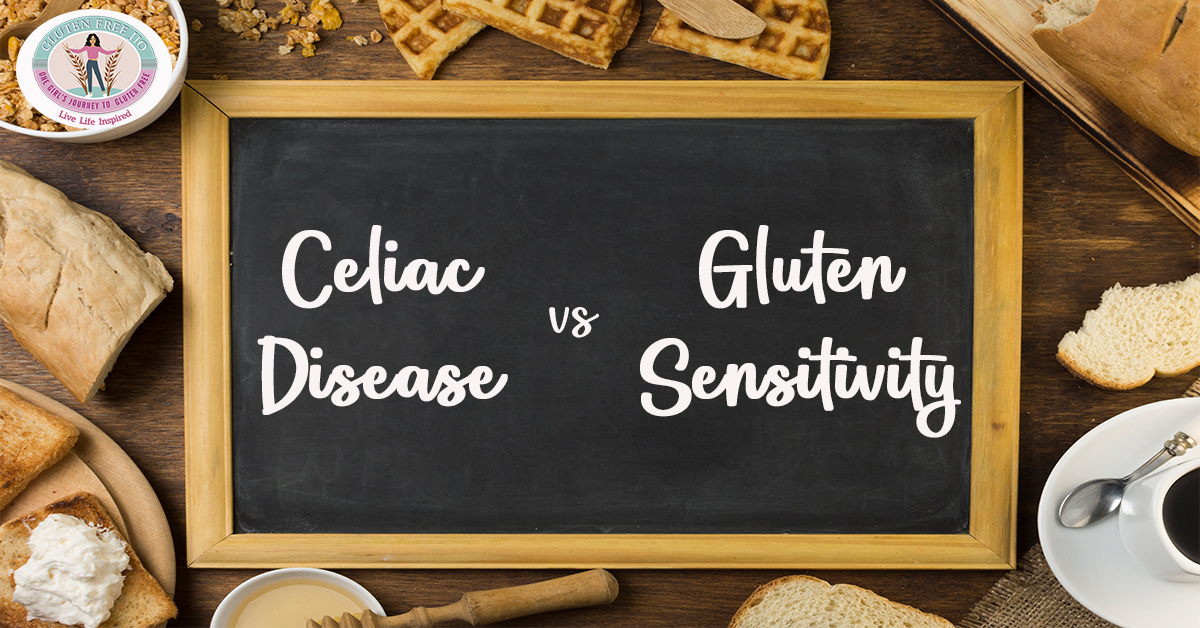Celiac Disease or Gluten Sensitivity – Which Do You Have?

Over the past few years, the gluten-free diet has gained significant traction. Still, many people don’t fully understand “going gluten-free” and the need to follow a strict gluten-free diet. For those who don’t know what gluten is, it’s a protein found in grains such as barley, wheat, and rye. Many individuals think that eliminating gluten from their diet helps in weight loss and is the reason many follow a diet plan without gluten.
However, a strict gluten-free diet is more beneficial for those with celiac disease, gluten sensitivity, or a wheat allergy.
Difference Between Gluten Sensitivity and Celiac Disease
Many people get confused with the terms and think that both conditions are the same; an individual must kick gluten out of their diet to stay healthy. But that’s not the truth.
If a person with celiac disease ingests gluten, his or her immune system attacks the body’s tissues and affects the lining of the small intestine. Whereas, if a person is gluten intolerant, the consumption of foods with gluten will cause short-term symptoms, including bloating and belly pain.
Unlike celiac disease, gluten sensitivity doesn’t harm the body in the long run.
Celiac Disease
Celiac disease is an autoimmune disease that impacts the small intestine whenever an individual eats gluten.
When the trigger food (gluten) is accidentally ingested, white blood cells start producing antibodies that attack the lining of the small intestine, causing intestinal damage.
The small intestine consists of villi that are finger-like follicles that absorb nutrients from the food that we eat. When villi are damaged due to continuous gluten intake, the body stops absorbing nutrients and may lead to nutrition deficiency.
The symptoms of celiac disease include:
- Chronic fatigue
- Muscle & joint pain
- Anemia
- Digestive issues
- Skin disorders
Gluten Sensitivity
Since gluten sensitivity was more recently discovered, there’s still a lot of confusing information circulating related to this medical condition.
People with gluten sensitivity experience inflammation every time they consume gluten and can have symptoms, including bloating and mild to moderate stomach pain.
Also, those with gluten sensitivity have normal microvilli, unlike those with celiac disease. Hence, it’s not categorized under autoimmune disorders.
People with gluten sensitivity may have similar symptoms to celiac disease, and in some cases, if the condition isn’t treated, can lead to severe health issues.
Testing for Celiac Disease and Gluten Sensitivity
Testing for celiac disease or gluten sensitivity requires blood tests. The tests focus on different things to determine the actual cause of symptoms.
For celiac disease, the blood test looks for specific gluten antibodies and is called “tissue transglutaminase antibody” (tTG-IgA).
While there’s no particular blood test for gluten sensitivity, your physician would examine certain medical conditions and then recommend a gluten-free diet to find out if the symptoms disappear.
Final Thoughts
If an individual has been diagnosed with celiac disease, he or she must follow a strict gluten-free diet immediately. For gluten sensitivity or gluten intolerance, one can consider consuming gluten if the symptoms are mild and manageable by consulting the doctor.
 MY JOURNEY
MY JOURNEY About Me
About Me Early life
Early life Diagnosis
Diagnosis CELIAC DISEASE
CELIAC DISEASE Symptoms & Diagnosis
Symptoms & Diagnosis Treatment & Follow Up
Treatment & Follow Up GLUTEN - FREE LIVING
GLUTEN - FREE LIVING At Home
At Home At School
At School At Social Events
At Social Events
 Grocery Shopping
Grocery Shopping COMMUNITY OUTREACH
COMMUNITY OUTREACH Gluten Free Meetup
Gluten Free Meetup Workshops
Workshops Webinars
Webinars COVID-19 Camps By Gluten Free Jio
COVID-19 Camps By Gluten Free Jio  Mid Day Meal
Mid Day Meal Beyond Celiac
Beyond Celiac Real Stories of Celiac
Real Stories of Celiac RESOURCES
RESOURCES Restaurant Dining Cards
Restaurant Dining Cards Recipes
Recipes Gluten Free eBook
Gluten Free eBook Gluten Free Jio App
Gluten Free Jio App RECOGNITION
RECOGNITION TRAVEL DIARY
TRAVEL DIARY



